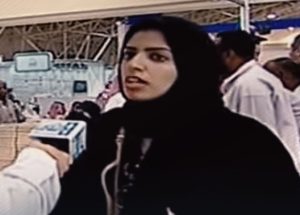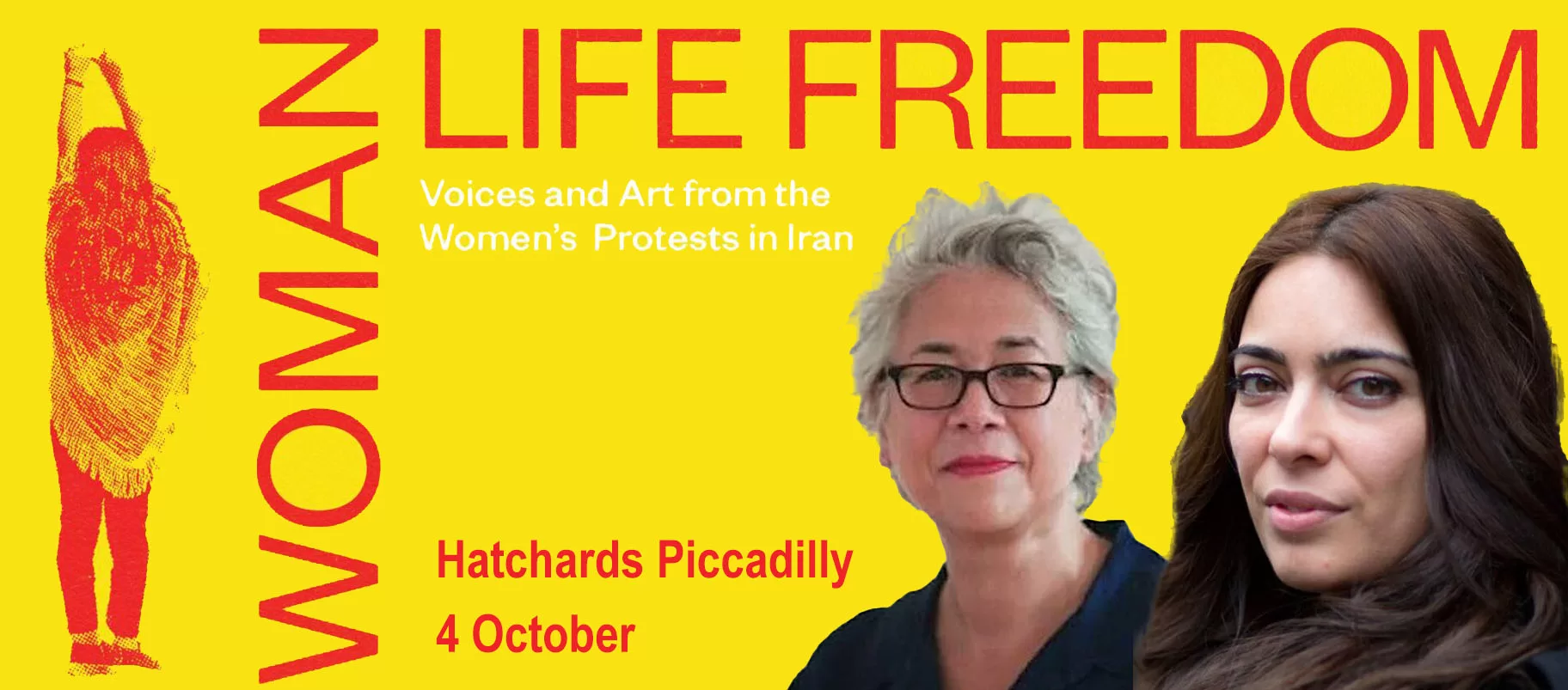28 Sep 2022 | News and features, Russia, United Kingdom

Dr Emma Briant, one of the key researchers who uncovered the Cambridge Analytica scandal in 2018
The vortex of misinformation, conspiracy theories, hatred and lies that we know as the unacceptable face of the internet has been well documented in recent years. Less well documented are the players behind these campaigns. But a small and growing group of journalists and researchers are working on shining a light on their activities. Dr Emma Briant is one of them. The professor, who is currently an associate at the Center for Financial Reporting and Accountability, University of Cambridge, is an internationally recognised expert who has researched information warfare and propaganda for nearly two decades. Her approach is that she doesn’t just research one party in the information war. Instead Briant considers each opponent, even those in democratic states, a breadth and detail that is important. As she tells me you miss half the story if you concentrate on single examples.
“This is a world in which there is an information war going on all sides and you can’t understand it without looking at all sides. There isn’t a binary of evil and pure. In order to understand how we can move forward in more ethical ways we need to understand the challenge that we are facing in our world of other actors who are trying to mislead us,” Briant says.
“There are powerful profit-making industries that are reshaping our world. We need to better research and understand that, to not simply expose some in isolated campaigns like they are just bad apples,” she adds.
Briant is perhaps best known for her work on Cambridge Analytica. She was central in exposing the data scandal related to the firm and Facebook at the time of the USA’s 2016 election. So what drove her to this area of research?
“My PhD looked at the war on terror and how the British and Americans were coordinating and developing their propaganda apparatus and strategies in response to changing media forms and changing warfare. Now that led me to meet Cambridge Analytica or rather its predecessor, the firm SCL group. Cambridge Analytica were using the kind of propaganda that had been used in the military, but in this case in elections, in democratic countries.”
The groundwork for this research was laid much earlier, when Briant lived as a child in Saudi Arabia around the time of the Gulf War. She was shocked to find lines and lines of Western newspapers censored with black pen, to the point you couldn’t read them, and pro-US and anti-Iraq propaganda everywhere.
“I was amazed by the efforts at social control,” she said.
Then, during her first degree, she studied international relations and politics when 9/11 happened and, as she says, “the world changed”.
“I was really very concerned about what we were being fed, about the spin of the Iraq war,” says Briant.
Like many she was inspired by a teacher, in her case Caroline Page.
“[Page] wrote a book on Vietnam and propaganda, and she had interviewed people in the American government and I was amazed that a woman could just go over to America and interview people in politics and in government and get really amazing interviews with high level officials. This really inspired me.”
Briant was motivated by both Page’s example and her specific work.
“She wanted to really find out what was going on and understand the actors behind the propaganda. And that is what really fascinates me most. Who’s behind the lies and the distortions? That’s why I’ve taken the approach that I have, both in looking at power in organisations like governments and how that’s deployed, and looking at how we can govern that power in democracies better.”
Because of Briant’s all-sided approach, she says she can attract the ire of people across the spectrum. People who focus only on Russia, for instance, might dislike that Briant critiques the British government. Conversely, people who are critics of the UK and US government call into question whether she should challenge Russian or Chinese propaganda. But, as she reiterates, “it’s really important to have researchers who are willing to take on that difficult issue of not only understanding a particular actor but understanding the conflict, protecting ordinary people and enabling them to have media they can trust and information online which is not deceptive.”
Criticism of her work has at times taken on a sinister edge. Briant is, sadly, no stranger to threats, trolling and other forms of online harassment.
“It’s very difficult to even just exist online if you’re doing powerful work, without getting trolled,” Briant says.
“The type of work that I do, which isn’t just analysing public media posts and how they spread, but is also looking at specific groups’ responsibilities and basically researching with a journalistic role in my research, that kind of thing tends to attract more harassment than just looking at online observable disinformation spread. Academics doing such work require support.”
Briant cites the case of Carole Cadwalladr, a journalist at the Guardian, as an example of how online campaigns are used to silence people. Like Briant, Cadwalladr pointed the looking glass at those behind the misinformation that spread in the lead-up to the EU referendum. Cadwalladr experienced extreme online harassment, as well as a lengthy and very expensive legal battle. Taken by Arron Banks, the case had all the hallmarks of being a SLAPP, a strategic lawsuit against public participation, namely, a lawsuit that has little to no legal merit. Its purpose is instead to silence the accused through draining them of emotional, physical and financial resources.
Briant has not been the subject of a SLAPP herself but has experienced other attempts to threaten, intimidate and silence her. Meanwhile, the threat of lawfare lingers in the background and has affected her work.
 “Legal harassment has a real impact on what you feel like you are able to say. At one point after the Cambridge Analytica scandal it felt like I couldn’t work on highly sensitive work with a degree of privacy without the threat of being hacked or legal threats to obtain data or efforts to silence me. You cannot develop research on powerful actors and corrupt or deceptive activities as a journalist or a researcher without knowing your work is secure,” Briant says.
“Legal harassment has a real impact on what you feel like you are able to say. At one point after the Cambridge Analytica scandal it felt like I couldn’t work on highly sensitive work with a degree of privacy without the threat of being hacked or legal threats to obtain data or efforts to silence me. You cannot develop research on powerful actors and corrupt or deceptive activities as a journalist or a researcher without knowing your work is secure,” Briant says.
The ecosystem might be changing. New legislation has been proposed that will make using SLAPPs harder in the UK, where they are most common (the US, by comparison, has laws in place to limit them). But, as Briant highlights, there is more than one way to skin a cat.
“I don’t think people really understand the silencing effect of threat, not necessarily even receiving a letter but the potential of people to open up your private world. The exposure of journalism activities before an investigation is complete enables people to use partial information to misrepresent the activities, it can even put sources at risk,” she says.
While Briant believes these harassment campaigns can affect anyone doing the sort of work that she and Cadwalladr do, she says we can’t ignore the gender dynamic.
“Trolling and harassment affects a lot of different women and women are much more likely to experience this than men who are doing powerful work challenging people. This is just true. It’s been shown by Julie Posetti and her team, and it’s also the case if you look at other minorities or vulnerable communities.”
Of course if Briant was just a bit player people might not care as much. Instead, Briant has given testimony to the European Parliament and had her work discussed in US Congress. She’s written one book, co-authored another and has contributed to two major documentary films (one being the Oscar-shortlisted Netflix film The Great Hack). In today’s world, the attacks she has received have become part of the price people are paying for successful work. Still it’s an unacceptable price, one that we need to speak about more.
Briant is doing that, as well as more broadly carrying on with her research. She’s also writing her next two books, one of which revisits Cambridge Analytica. In Briant fashion, it places the company in a wider context.
“I’m looking at different organisations and discussing the transformation of the influence industry. This is really a very new phenomenon. Digital influence mercenaries are being deployed in our elections and are shaping our world.”
26 Aug 2022 | Opinion, Ruth's blog, Saudi Arabia
 I love working at Index but it isn’t always an emotionally easy place to work. Every day my team and I are exposed to some of the most heartbreaking stories of human rights abuses around the world. We routinely have to read the details of toture, persecution, detention and murder and whilst we try not to become immune to the daily horrors – sometimes that is the only way to do our jobs.
I love working at Index but it isn’t always an emotionally easy place to work. Every day my team and I are exposed to some of the most heartbreaking stories of human rights abuses around the world. We routinely have to read the details of toture, persecution, detention and murder and whilst we try not to become immune to the daily horrors – sometimes that is the only way to do our jobs.
However there will always be a case that makes us collectively stop. A person’s story that makes us feel impotent. That touches our hearts. That demands even more from us. That personifies the reason why Index was established in the first place – and sometimes it won’t be the most graphic of cases – but rather one so unjust we cannot move on.
And that happened again this month.
There has been limited media coverage about Salma al-Shehab. An academic, a PhD student at the University of Leeds. A wife, a mother of two and a Saudi citizen. She also happened to occasionally use Twitter to support the plight of women in Saudi and to call on those dissidents and clerics who had been detained to be released. She isn’t a leading political activist or a leading light of a human rights organisation – her PhD is in medicine.
Last year Salma returned to Saudi on holiday and was immediately arrested, tried and convicted by a terrorism tribunal of aiding dissidents seeking to “disrupt public order” and publishing “false rumours”. Her initial sentence was six years in detention. However this month, after an appeal, her sentence has been increased to 34 years followed by a 34-year restriction on travel. For the ‘crime’ of occasionally using social media while in the UK to highlight the detention of others in Saudi Arabia, she will be held in a Saudi prison until she is 68 years old and will not be allowed to leave Saudi Arabia again until she is 102.
This is the longest sentence ever issued by a Saudi court for a peaceful activist. To all intents and purposes it is little short of a death sentence. For the crime of using social media.
Salma deserves more than the words of protest that come from Index and others, although we do protest her arrest and are horrified by her treatment. She deserves her liberty. She has been imprisoned for using her voice, when in a democratic country, to defend others who no longer are able to be heard. She acted in the best traditions of a dissident.
So from here on in, Index will seek to use its voice to raise hers. We will not let the world forget her, as she sits in a Saudi prison.
On the 15th of every month (she was initially arrested on 15 January 2021), we will tell her story. Shining a light on her plight. And in the coming months we will work with partners both in the UK and across the world to make sure her case doesn’t get forgotten as just another case of human rights abuse by Saudi Arabia.
24 May 2021 | Belarus, Media Freedom, News and features
[vc_row][vc_column][vc_column_text]
There has rightly been international condemnation of the arrest of Roman Protasevich after his Ryanair flight from Greece to Lithuania was diverted to Belarusian capital Minsk. It is of particular concern that the state hijacking of Flight FR4978 was carried out on the personal orders of President Alexander Lukashenko. His disgraceful “confession” on state TV comes straight from the authoritarian playbook.
The 26-year-old has been described in a single report on the BBC as a “Belarusian opposition journalist”, a “dissident” and an “activist”. This extraordinary young man is all these things and more. But it is important that the western media does not let the Belarus regime define the narrative.
Protasevich is an independent journalist, but to be so in Belarus is to immediately become an activist. And, meanwhile, the regime is in the process of defining all activists as terrorists. Index has been reporting for months on the systematic crackdown on independent journalism by the Lukashenko regime. Hijacking is just the latest method to control free expression in Belarus.
British MP Tom Tugendhat (chair of the Foreign Affairs Select Committee) has described the arrest as a “warlike act”, and this is no understatement. He has emphasised that a hijacking is an escalation of the situation. But we should not lose sight of why Protasevich represented such a threat. It is because he was a journalist the regime has not been able to control since he fled the country for Poland in 2019.
Protasevich is the former editor of Nexta, a media organisation that works via the social media platfrom Telegram, which circumvents censorship in Belarus. Nexta was instrumental in reporting on the opposition to Lukashenko during the elections of 2020. Until this week Protasevich had been working for another Telegram channel Belamova. Like the underground “samizdat” publications of the Soviet era, these Telegram channels provided much-needed hope to civil society in Belarus.
Parallels have been drawn between Russian dissident Alexei Navalny and Roman Protasevich and it is true that he provides a similar focus for the Belarusian opposition. However, he has been targeted not as a political leader, but as a journalist. It is as a journalist that we should defend him.
[/vc_column_text][/vc_column][/vc_row][vc_row][vc_column][three_column_post title=”You may also want to read” category_id=”172″][/vc_column][/vc_row]



 “Legal harassment has a real impact on what you feel like you are able to say. At one point after the Cambridge Analytica scandal it felt like I couldn’t work on highly sensitive work with a degree of privacy without the threat of being hacked or legal threats to obtain data or efforts to silence me. You cannot develop research on powerful actors and corrupt or deceptive activities as a journalist or a researcher without knowing your work is secure,” Briant says.
“Legal harassment has a real impact on what you feel like you are able to say. At one point after the Cambridge Analytica scandal it felt like I couldn’t work on highly sensitive work with a degree of privacy without the threat of being hacked or legal threats to obtain data or efforts to silence me. You cannot develop research on powerful actors and corrupt or deceptive activities as a journalist or a researcher without knowing your work is secure,” Briant says. I love working at Index but it isn’t always an emotionally easy place to work. Every day my team and I are exposed to some of the most heartbreaking stories of human rights abuses around the world. We routinely have to read the details of toture, persecution, detention and murder and whilst we try not to become immune to the daily horrors – sometimes that is the only way to do our jobs.
I love working at Index but it isn’t always an emotionally easy place to work. Every day my team and I are exposed to some of the most heartbreaking stories of human rights abuses around the world. We routinely have to read the details of toture, persecution, detention and murder and whilst we try not to become immune to the daily horrors – sometimes that is the only way to do our jobs.